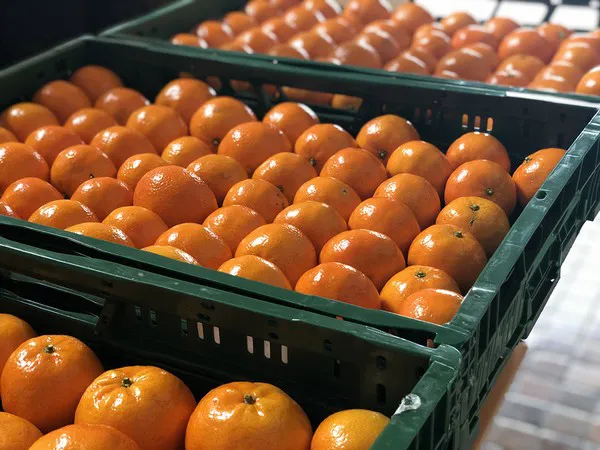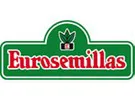The Region of Valencia will be the leading European producing area when it comes to the expansion of the new Kino extra-late variety, which will allow the Valencian sector to extend the marketing campaign for mandarins from March-April until May or even early June. It is said that the fruit will also result in an improvement of the current supply.
This will be possible thanks to the preferential agreement reached by the Valencian Association of Agricultural Producers (AVA-ASAJA) and Eurosemillas, the Spanish company that manages this citrus fruit, and which will give priority to its associated producers in the granting of licenses. This was stated a few days ago by the president of the entity, Cristóbal Aguado, who was accompanied by the Director of Innovation at Eurosemillas, José María Fontán, who outlined the main features of this new signature mandarin.

In the northern hemisphere, the Kino harvest is carried out between February and May, so it falls right into the extra-late category. "Spain will be able to continue responding to the growing European demand for mandarins, and it will do so with a premium quality fruit during a period in which there is usually a considerable gap in the supply," said José María Fontán. Meanwhile, in the southern hemisphere, it will be harvested between August and November.
Registered as Kinnow LS, but marketed under the commercial name Kino, this fruit was obtained by the University of California Riverside (UCR), improving on the original hybrid variety to reduce the presence of seeds to the bare minimum.
"There's a very low number of seeds in the Kino, but its main virtues, beyond this market requirement, are its excellent condition, its extraordinary sweetness (it reaches 15.8 degrees Brix) and great juiciness (49% juice), which help it stand out from the rest. It is also easy to peel," said José Maria Fontán.
"It is very attractive for the consumer. It can endure a long journey, so it is sure to be interesting for exporters, and it is very productive, reaching high calibers, so it will ensure a high profitability for the citrus grower," said the agronomist.
Its suitability for export and the varietal certification system, based on molecular markers and the use of labeling to ensure its traceability and identity, "makes me think that in a short time it could become a global mandarin," said Fontán.
The main agronomic attributes of the Kino were confirmed by the Eurosemillas executive with data (tested by the UCR in his farm in Seville, as well as in experimental fields in Valencia and Murcia).
"Its productivity is, indeed, very considerable, with between 55 and 60 tons per hectare. It becomes productive early, with harvests already in the second or third year after planting, and the fruit tends to be produced inside the canopy. Moreover, it is easy to handle and does not require a lot of care either during the harvest (it does not need hormonal treatments for the fruit setting, unlike other extra-late varieties) or afterwards (to prevent the bark from drying out). It also reaches an outstanding average size, significantly larger than that of almost all hybrids: 68 mm. Also, the parents of this variety are highly resistant to diseases such as Alternaria.
The tests carried out also confirmed a quality that makes it very attractive commercially, especially for exporters: its post-harvest shelf life.
"The sugar/acidity ratio did not change significantly while in storage in a 4-degree chamber for 15, 30, 45, 60 and even 75 days. It was also found that it is perfectly able to withstand the cold treatment required by many third markets (such as the US, China, Japan, India or South Korea) to prevent the presence of certain pests.
The president of AVA-ASAJA, Cristóbal Aguado, stressed that "the professional agricultural organization is willing to provide its members with the information provided by Eurosemillas, as well as preferential access, because only when they have been given all the data will they be in a better position to decide whether or not to bet on this variety."
According to Eurosemillas, the first trees could be planted as early as next year.
 For more information:
For more information:
Eurosemillas
Paseo de la Victoria, 31,
14004 Cordoba. Spain
T: (+34) 957 42 17 32
[email protected]
www.eurosemillas.com/es/
 AVA ASAJA
AVA ASAJA
Calle Guillem de Castro, 79
46008 Valencia. Spain
T: +34 96 380 46 06
[email protected]
www.avaasaja.org










